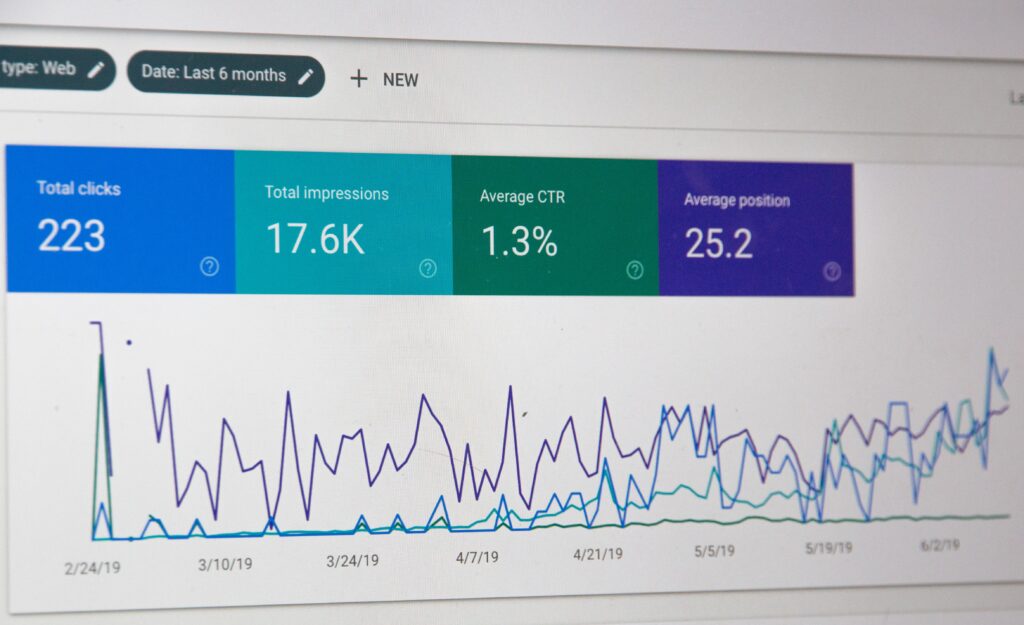
How to Rank on Google
Are you looking to get your small business discovered by more people? If so, having a presence on Google can help make this happen. Ranking on the search engine giant is essential for businesses of all sizes – big and small alike – as millions of people use it daily to find the information or services they are looking for. But how do you actually achieve higher rankings on Google? In this blog post we’ll discuss some key strategies that will help your small business rank higher on Google and increase online visibility.
Optimise Your Site for Search Engines – This includes using keywords throughout your content and metatags in the head section of your website.
In today’s digital age, simply having a website is not enough. You need to make sure that your website is optimised for search engines. By doing this, you increase the chances of your website appearing at the top of relevant search results, which can drive more traffic to your site. One way to optimise your site is by strategically using keywords throughout your content. This means including words and phrases that are relevant to your business or industry in your website’s copy. Additionally, using metatags in the head section of your website is important. Meta Tags provide information about your website to search engines, making it easier for them to understand what your site is all about. By taking these steps, you can help ensure that your website is visible to potential customers when they conduct relevant searches online.

Create Quality Content – Write blog posts that are useful, relevant, and engaging to readers.
Creating quality content is an essential part of any successful blog. To capture your readers’ attention, your content must be useful, relevant and engaging. Writing blog posts that provide valuable information or insights can be a game changer in building an audience. Moreover, nobody wants to read the same information that has been written elsewhere. This is why it’s important to give your readers a unique perspective on the topic you are addressing, showing your understanding and knowledge related to the subject. By creating quality content, you can establish yourself as an expert in your field while maintaining audience interest, generating responses, and improving engagement with your readers.
Use Internal Links – Linking within your website helps establish authority and will help users navigate easily around your site.
One of the most effective ways to establish authority on your website is through the use of internal links. By linking to other pages within your site, you provide readers with additional information and resources, making it easier for them to find what they need. Not only does this help users navigate your site, it can also have a positive impact on your search engine rankings. When search engines see that your pages are linked together in a logical and meaningful way, they are more likely to view your site as a credible source of information. So if you haven’t already, consider incorporating internal links into your website to help bolster your authority and improve user experience.
Get High-Quality Backlinks – Link building is important because external links show Google that other people trust your site and its content.
In the competitive world of SEO, link building is an essential tactic to strengthen your website’s authority and ranking. Apart from improving visibility, high-quality backlinks serve as an endorsement from other sites, indicating that your content is valuable and reliable. These links act as a vote of confidence, signalling trust and authority to search engines like Google. While building links is a time-consuming process, it is crucial to invest in a well-rounded link building strategy that includes guest blogging, broken link building, and building relationships with influencers in your niche. A robust and diverse backlink profile will help your website earn high-quality traffic and establish trust with search engines.

Develop a Mobile-Friendly Website Design – Having a mobile-friendly design makes it easier for search engine crawlers to read and index your content, as well as providing a better user experience on mobile devices.
In today’s digital age, it’s imperative to have a website that is easily accessible on mobile devices. With the majority of internet traffic coming from mobile devices, having a mobile-friendly design is not just an option, it’s essential. But, what exactly does a mobile-friendly design entail? It means designing a website with a layout that adjusts to fit different screen sizes, ensuring that all text and images are easily readable, and optimising the website’s loading speed. Not only does a mobile-friendly design improve accessibility, but it also provides a better user experience. By implementing a mobile-friendly design, you’ll be able to reach a wider audience, engage more viewers, and ultimately, increase your website’s success.
Monitor Your Performance – Track how you’re doing by checking traffic data, keyword rankings, etc., so you can determine what’s working and what needs adjustment.
To truly succeed in any field, keeping track of your progress and performance is crucial. The same applies to website management and digital marketing. By tracking important metrics like traffic data and keyword rankings, you can gain valuable insights into your website’s performance and determine what strategies are working and which ones need improvement. By regularly monitoring your website’s analytics, you can keep up with changes in user behaviour and adjust your approach accordingly. With this valuable information, you can fine-tune your website and digital marketing efforts, ensuring that you continue to grow and succeed online.
To ensure your website is optimised for the search engines and stays up to date, it is important to monitor performance, update content regularly and make adjustments as needed. SEO can be a time-consuming process, but if done correctly, you will see your site’s traffic increase significantly. It is also important to remember that SEO may take some time to show positive results, so patience is key.
All of these strategies come together to create a massive impact on your website’s visibility when implemented correctly. While there are countless techniques involved in optimising a website for search engines, following the tips above can certainly put you on the right path towards success. If you’d like to know more about SEO, or if you need a hand with your website, contact us today – we’re always happy to have a chat!